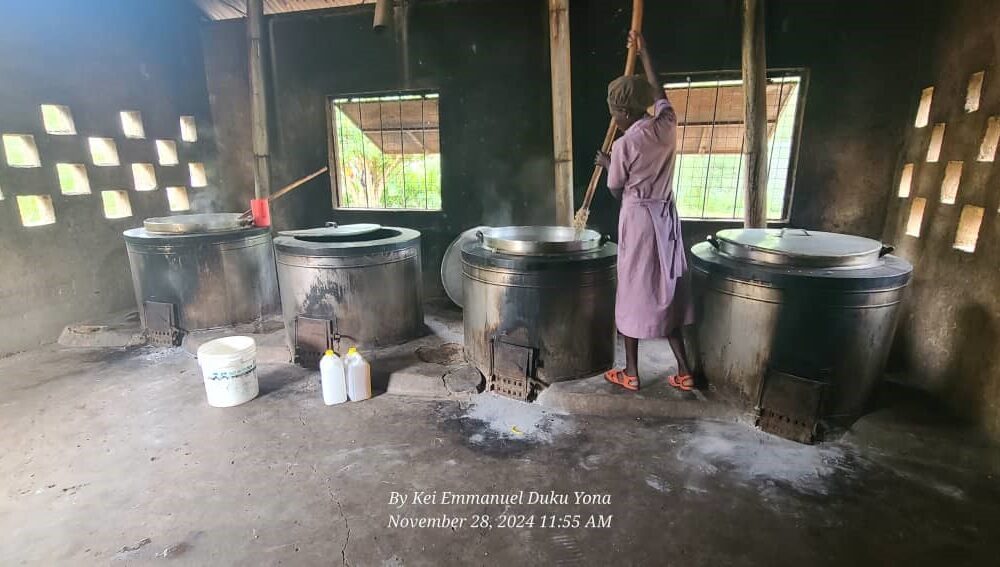By Kei Emmanuel Duku
As a measure to curb deforestation and reduce use of wood fuel, the administration of St. Magdalen Primary School has adopted clean-energy cooking stoves.
According to Sr. Mary Nkatha Jenario, a Head Teacher at St. Magdalen Primary School in Kapoeta North County, East Equatoria State, before the introduction of the cooking oven, the school faced several challenges. Apart from spending excessively on firewood, the traditional three-stove type consumed a significant amount of fuel and emitted excess heat, affecting the health of the cooks.
She added that the administration used to spend on five trips of firewood, which wouldn’t last an entire term. However, after implementing the clean cooking stoves, the school has reduced firewood spending by half. Sr. Nkatha explained, “With the traditional stoves, we used a lot of firewood, and the fire was too intense. The smoke filled the entire kitchen, even with doors and windows open. Now, we only need two or fewer trips of firewood for the whole term, and the cooks’ health has improved significantly due to reduced smoke inhalation.”
She emphasized that the primary objective of introducing clean energy stoves is to protect the environment.
Additionally, Regina Lopuke, a school cook, shared her experience with the clean-energy cooking stoves. She has been using them for the past three years and appreciates their simplicity, reduced smoke emissions, and lower firewood consumption. While the stoves can use both charcoal and firewood, they primarily rely on firewood due to the high cost of charcoal.
Lopuke noted that the school spends 60,000 Pounds weekly on 4-5 bags of charcoal, compared to one trip of firewood, which lasts an entire term. She highlighted the oven’s efficiency, saying, “The oven is faster than the traditional three-stone method and has a valve that directly vents smoke into the atmosphere. With the oven, we only need to chop three pieces of wood into smaller pieces, insert them into the oven, light the fire, and close it to cook 25 kg of cowpeas or sorghum in two days.”
Meanwhile, Josephat Kutyauripo, ADRA Project Manager, explained how clean stoves contribute to environmental protection. By utilizing more efficient fuel sources and technologies, they reduce the demand for firewood, protecting forests from degradation. This reduction in tree-cutting promotes biodiversity and supports ecosystem recovery.
Kutyauripo added that ADRA is currently implementing a biogas project in Upper Nile State, generated from animal waste, and plans to replicate it in Kapoeta North to further protect the environment.
He stated, “The cooking oven has the potential of reducing firewood use by almost 50%, and it’s the way to go. Kapoeta North is a cattle community, so we’re planning to introduce biogas technology under our school feeding program. At the community level, we’re encouraging the use of mobile biogas, where cow dung is poured into a bio-digester for cooking. This is especially relevant for the local pastoralist communities.”
Kutyauripo emphasized the efficiency of both the oven and mobile biogas technologies in reducing firewood consumption and improving cooking efficiency. He concluded that once adopted at the community level, the clean energy cooking stoves will help reduce the time women spend searching for firewood in the forest.




